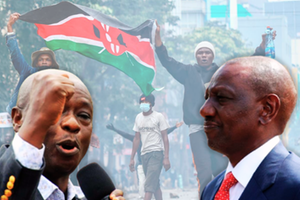Release capitation for secondary schools now
Once again, the government has delayed disbursement of capitation to schools. School managers are now calling for the release of the funds, saying further delay will complicate the running of the institutions.
It is rather strange that it has become customary for the Ministry of Education to delay the disbursements yet the school calendar is determined at the beginning of the year.
For both the Free Primary Education (FPE) and the Free Day Secondary Education (FDSE) to be successful, the programmes must be run efficiently, free of distress to school managers.
Making headteachers and principals operate at the mercy of traders who supply teaching and learning items, construction materials ans foodstuffs goes against the objective of FPE and FDSE. Anticipating payment delays, suppliers sell their goods and services to schools at prices higher than the market rates, making education unnecessarily expensive.
The school heads also complain that, for various reasons, some parents do not meet their financial obligations. It is government policy that no learner should be sent home for non-payment of fees and, therefore, capitation should disbursed on time, preferably even before the new term begins.
Lack of money means school activities are affected. For example, the current second term, usually the longest, is quite busy with co-curricular activities that learners are engaged in, which cost schools money.
Candidates sit mock examinations. Denying students the opportunity to participate in such activities could trigger unrest, resulting in loss of property and closure of schools, hence loss of class time for the students.
Day secondary schools are the most affected by the perennial delays by the ministry in releasing capitation because they rely entirely on the capitation to run. They are not allowed to charge any levies, unless with authority from the ministry.
The government must also move in haste to establish the Special Service Tariff for all learning institutions for basic utilities such as water, electricity and internet connection as promised in the Kenya Kwanza manifesto. That would bring down the cost of education significantly.





